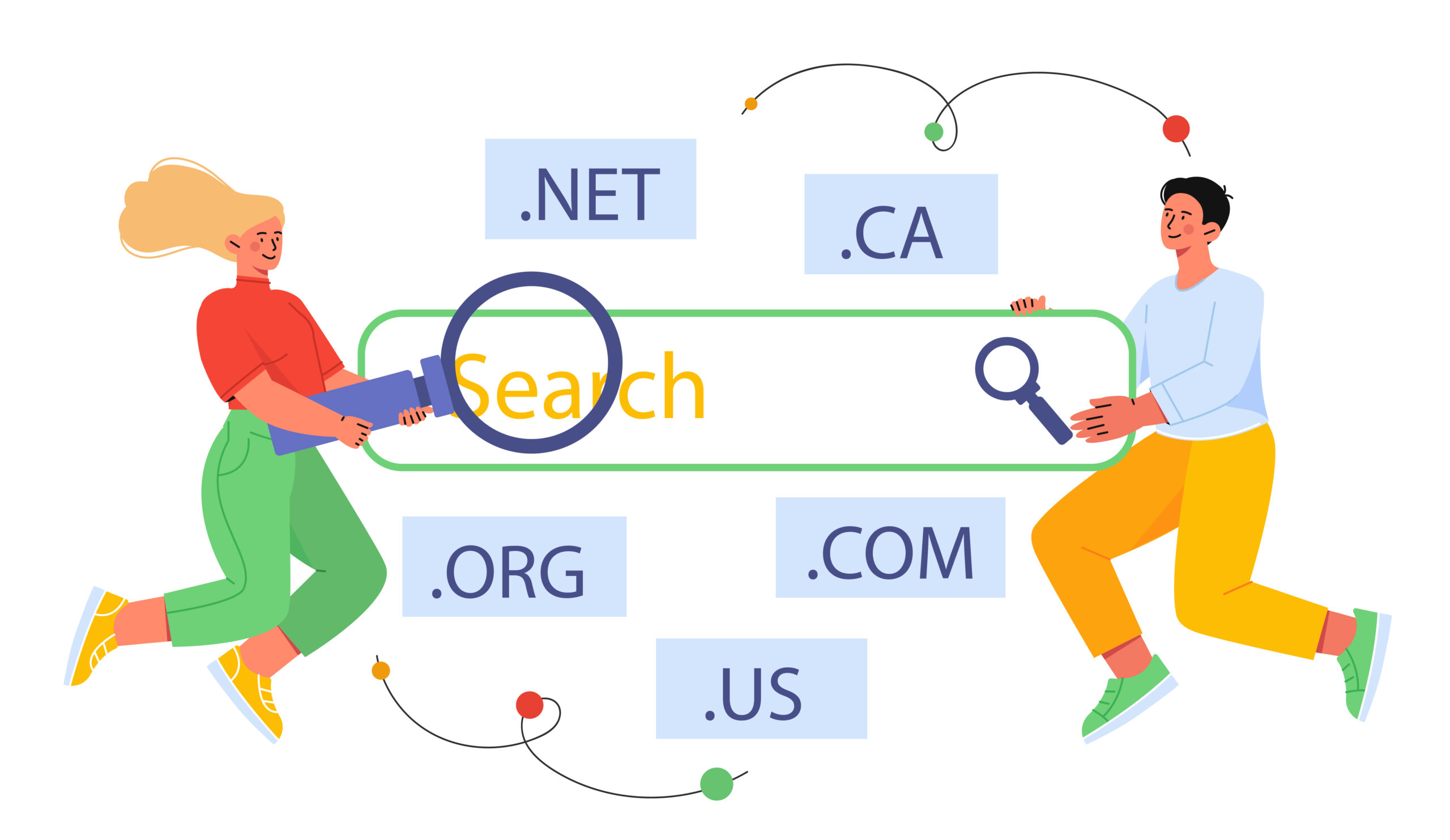34 Effective Inbound Link-Building Strategies to Rank Your Site Higher
Building high-quality inbound links to your website may seem challenging, but it doesn’t have to be. While some site owners turn to spammy blog comments for backlinks, this approach is neither effective nor beneficial for SEO.
Despite the emphasis on earning inbound links, the practical steps to achieve them are often overlooked. Fortunately, link-building doesn’t have to be complicated. Think of it like social media—when you create valuable content and share it with the right audience, they naturally engage and spread the word.
To help you get started, we’ll walk you through effective and legitimate ways to earn backlinks that can help improve your search visibility.
What Is Link Building?
Link building is the process of acquiring high-quality inbound links from other websites to increase referral traffic, improve domain authority, and enhance search rankings. A well-executed link-building strategy can enhance your website’s credibility in search engines, making it a crucial component of Search Engine Optimization (SEO).
What Are Backlinks?
Backlinks, also known as inbound or incoming links, are hyperlinks from external websites that direct users to your site. Unlike outbound links (which send users away from your site), backlinks signal to search engines that your content is valuable and credible.
When search engines recognize that authoritative websites are linking to your pages, your rankings improve, helping you gain more organic traffic. A well-rounded backlink profile is a crucial factor in SEO Optimization Services. Backlinks from high-domain authority (DA) websites carry more weight and contribute significantly to improving rankings.
Effective Link Building Strategies
1. Publish High-Quality Blog Content
Imagine walking into a library where every book is filled with vague, recycled ideas. Would you want to read them? No! That’s exactly how Google and other websites feel about low-quality content. If you consistently publish valuable blogs, well-researched, and engaging blog posts, people will naturally want to link to them. Whether you’re a local business or a digital marketing giant, your blog should provide unique insights, practical advice, and a fresh perspective. Over time, other bloggers, businesses, and journalists will reference your content, leading to high-authority backlinks that strengthen your website’s credibility.
2. Link to Other Blogs in Your Posts
Think of the internet as a networking event. The more people you connect with, the more opportunities you create for collaboration. When you link to other relevant blogs in your articles, you not only provide valuable resources for your readers but also catch the attention of those bloggers. Many will notice your mention and, in turn, link back to your website in their future posts. This simple act of generosity builds relationships, increases engagement, and fosters organic link-building.
3. Write Guest Blog Posts
Guest blogging is like being invited to speak at someone else’s event. You get to showcase your expertise to a new audience while gaining a valuable backlink. When you write a high-quality guest post for a reputable website in your industry, you not only drive traffic to your site but also build authority. The key is to pitch compelling topics that add value to the host site’s readers. Websites appreciate well-researched, non-promotional content, making it a win-win situation for both parties.
4. Create Comprehensive Resource Lists
People love shortcuts. Instead of searching for ten different sources, they’d rather find everything in one place. That’s why resource lists are a goldmine for link-building. If you create a well-structured, in-depth list of valuable tools, statistics, or case studies, other bloggers and businesses will prefer linking to your list rather than creating their own. The more useful and regularly updated your resource list is, the more backlinks it will attract over time.
5. Conduct Expert Roundups
Imagine gathering the top minds in your industry for a single, power-packed discussion. That’s the essence of an expert roundup. By reaching out to industry influencers and asking for their insights on a trending topic, you create an authoritative piece of content. Since contributors are featured, they are more likely to share and link to the post. Not only do you get backlinks, but you also position yourself as a trusted resource in your field.
6. Publish Newsjack Articles
The internet loves fresh, relevant content. If you can connect your industry to a trending news story, you have the opportunity to attract high-quality backlinks from journalists, bloggers, and news outlets. Newsjacking requires quick action—staying updated on current events and crafting insightful content while the topic is still hot. Whether it’s a major Google algorithm update or a viral marketing trend, capitalizing on timely news increases your chances of being referenced and linked.
7. Develop Case Studies
People trust real-world results. A compelling case study that highlights how your product, service, or strategy led to measurable success will naturally attract backlinks. Businesses, bloggers, and industry publications love citing case studies as evidence in their content. The more detailed and data-driven your case study is, the more valuable it becomes. Plus, clients featured in your study will likely share and link back to it.
8. Offer to Be a Case Study Subject
If you’ve had success using a tool or service, reach out to the company behind it and offer to be a case study. Many businesses create success stories to showcase their product’s effectiveness. By providing your experience and results, you can secure a backlink from a high-authority domain. This strategy not only earns you a quality link but also increases your visibility within your industry.
9. Conduct Surveys & Share the Data
Data-driven content is one of the most linked-to types of content on the internet. If you conduct a survey and publish original research, other businesses and marketers will cite your data in their articles. This is especially powerful in industries that rely on statistics and trends. The more unique and insightful your data, the higher your chances of earning backlinks from authoritative sources.
10. Write Book Reviews
Authors and book enthusiasts love to share insightful reviews. By writing a well-thought-out review of a popular book in your industry, you increase the likelihood of the author linking back to your content. You can also attract backlinks from book review sites and discussion forums. A detailed, honest review that includes key takeaways and actionable insights is more likely to be referenced.
11. Host Free Webinars & Post Archives
People are always eager to learn from experts. Hosting a free webinar not only positions you as an authority but also creates backlink opportunities. Attendees and industry sites often share webinar links, and if you publish an archive or summary afterward, you generate long-term link potential. The more valuable your webinar, the more likely it is to be referenced by other websites.
12. Develop Free Tools
Free tools are link magnets. If you create a calculator, generator, or any useful digital tool, people will naturally share and link to it. For example, a keyword research tool or an SEO audit checker can attract backlinks from blogs, forums, and industry directories. The key is to develop a tool that solves a real problem for your audience.
13. Create Templates for Others to Use
Templates simplify work, making them highly shareable. Whether it’s a content calendar template, a business proposal template, or a resume template, providing free, customizable resources encourages backlinks. Websites prefer linking to ready-made solutions rather than creating their own.
14. Design Engaging Infographics
Infographics combine data with visuals, making complex information easy to digest. Since they are highly shareable, they often attract backlinks from blogs, news sites, and social media users. To maximize link-building potential, include an embed code that allows others to easily share and credit your infographic.
15. Share Other Visual Content
Beyond infographics, videos, charts, and data visualizations are also highly linkable. Well-designed visual content adds value to articles and presentations, making it a go-to resource for bloggers and journalists looking for engaging elements.
16. Upload SlideShare Presentations
If you’ve created a great PowerPoint presentation, don’t let it sit on your hard drive. Upload it to SlideShare and other presentation-sharing platforms. This not only increases your reach but also generates backlinks when others reference your slides in their own content.
17. Incorporate Humor
People love sharing funny, industry-related content. A well-executed meme, comic, or humorous blog post can go viral, earning backlinks from entertainment sites, forums, and social media users. If humor aligns with your brand, this can be an effective way to gain traction.
18. Issue Press Releases
If your company has a major announcement, publishing a press release on reputable news platforms can generate backlinks from authoritative sites. Whether it’s a product launch, an award win, or a major partnership, press releases ensure your news reaches a broader audience.
19. Send Joint Press Releases
Collaborating with another company on a press release expands your exposure. When two businesses share news together, they double their chances of being picked up by journalists and industry bloggers, leading to more backlinks from various sources.
20. Reach Out to Journalists & Bloggers
Building relationships with journalists and bloggers can significantly boost your link-building efforts. If you have a compelling story or valuable insights, reaching out directly to relevant media contacts can result in high-authority backlinks from major publications.
21. Use Press Request Alerts
Platforms like HARO (Help a Reporter Out) allow journalists to seek expert opinions. By responding to relevant press requests, you can earn backlinks from news outlets, magazines, and authoritative blogs.
22. Submit Op-Ed Articles
An opinion piece in a reputable publication not only builds your personal brand but also earns you a valuable backlink. Writing a well-argued op-ed on a trending issue can attract attention and shares.
23. Partner with Complementary Businesses
Co-marketing with a business in a related industry (but not a direct competitor) can lead to mutual backlinking. By collaborating on content, you both benefit from increased exposure.
24. Engage in Co-Marketing Campaigns
Joint ebooks, reports, or video series with another company create double the marketing power. Both businesses share and promote the content, leading to backlinks from multiple sources.
25. Request Product or Service Reviews
Imagine you’ve built an incredible new software tool or launched an innovative product. But how do you get people talking about it? One of the best ways is to reach out to industry influencers, bloggers, or niche-specific websites and request a review. When these experts share their experiences with your product, they not only spread awareness but also link back to your site. These backlinks, often from high-authority sources, boost your credibility and rankings. To make this strategy effective, provide a free sample, exclusive discount, or in-depth documentation to make it easy for reviewers to cover your product.
26. Build Real-Life Relationships with Webmasters
SEO isn’t just about algorithms; it’s about human connections. If you take the time to build real relationships with webmasters in your industry, you increase your chances of securing natural backlinks. Attend networking events, engage in online forums, and interact with industry leaders on LinkedIn or Twitter. When people know and trust you, they’re more likely to link to your content. A simple conversation can lead to long-term collaborations, guest posting opportunities, or reciprocal backlinks that benefit both parties.
27. Monitor Brand Mentions
Ever wonder if people are talking about your brand without linking to your site? It happens more often than you’d think. Using tools like Google Alerts or BuzzSumo, you can track where your brand is mentioned across the web. If you find a mention without a backlink, reach out to the site owner or author with a polite request to add a link. Most publishers will be happy to do so, especially if your content adds value to their audience.
28. Identify & Fix Broken Links
The internet is full of broken links—links that lead to pages that no longer exist. This presents a huge opportunity. If you come across a broken link on a website related to your industry, reach out to the webmaster and suggest your relevant content as a replacement. Not only does this help the site fix a bad user experience, but it also earns you a valuable backlink. Tools like Ahrefs, Dead Link Checker, Link Juice Recovery Tool, and Screaming Frog can help you quickly find broken links in your niche.
29. Analyze Competitor Backlinks
If your competitors are ranking higher than you, it’s likely because they have strong backlinks. By using SEO tools like Ahrefs, SEMrush, Majestic or Moz’s Link Explorer, you can analyze their backlink profile and see where they’re getting their links. Once you identify these sources, you can reach out to them and offer better content, a guest post, or another incentive to earn a backlink. Reverse-engineering competitor strategies can give you a competitive edge in the link-building game.
30. Add “Tweet This” Links
Social media plays a significant role in content distribution, and adding “Tweet This” links to key takeaways in your articles makes it easier for readers to share your content. When more people share your content, it increases the likelihood of attracting backlinks from bloggers, journalists, and other content creators. The more visibility your content gets, the more chances you have of earning inbound links.
31. Install Social Sharing Buttons
Think of your content as a product sitting on a store shelf. If it’s hard to find or access, people won’t buy it. The same applies to your blog posts, infographics, and videos. Adding social sharing buttons to your site encourages visitors to share your content effortlessly. More shares mean greater exposure, and increased exposure leads to higher chances of getting backlinks from other websites that find your content valuable.
32. Sponsor or Speak at Events
Public speaking isn’t just great for personal branding—it’s also an effective link-building strategy. When you speak at industry events, conferences, or webinars, the event organizers often list you on their website with a backlink to your business. Similarly, sponsoring events—whether virtual or in-person—can get your business name listed on event pages, leading to high-authority backlinks that improve your SEO.
33. Get Listed in Business Directories
Business directories still hold value in SEO, but only if you choose the right ones. High-quality directories like Yelp, Clutch, and BBB (Better Business Bureau) can provide authoritative backlinks that boost your credibility. Local businesses especially benefit from getting listed in niche-specific directories. Ensure your business profile is complete and optimized with accurate details, as incomplete listings can diminish the potential SEO benefits.
34. Create an Engaging Affiliate Program
Affiliate marketing is not just about sales—it’s also about backlinks. When you create an affiliate program where partners promote your products, they often link back to your site through blog posts, social media, or email campaigns. These inbound links can help increase your search visibility while driving more traffic and conversions. A well-structured affiliate program benefits both you and your partners, creating a win-win situation in the digital marketing space.
Partner with our Digital Marketing Agency
Ask Engage Coders to create a comprehensive and inclusive digital marketing plan that takes your business to new heights.
Contact Us
Conclusion
Implementing these strategies consistently will help you build strong inbound links, improve search rankings, and drive targeted traffic to your website. As Engage Coders, the Best SEO Marketing Company in the USA, we understand that earning quality backlinks is a crucial step toward long-term SEO success. By focusing on high-quality, relevant links and building meaningful relationships, businesses can create a sustainable strategy that enhances online presence and authority. A well-structured link-building approach not only boosts credibility but also fosters valuable connections within the industry, ensuring long-term growth and visibility.
So, what are you waiting for? Schedule a call today!













